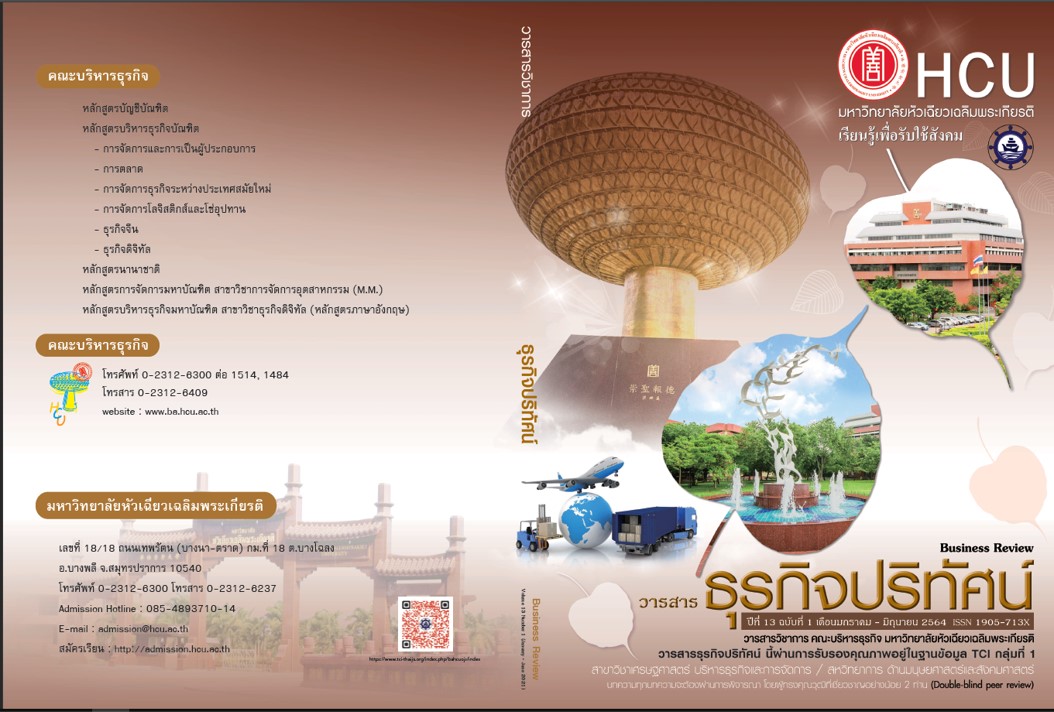Theoretical Reviews and Propositions for Explaining Resilient Organizations
Keywords:
comprehensive review, organizational crisis, resilient organizationAbstract
The objective of this article was to provide a comprehensive review for explaining resilient organizations. In this regard, theories, conceptual papers, and research articles related to the concept of resilient organizations, organizational crisis, and organizational survivability and adjustment despite adversity and challenges were reviewed. This review contributes to the development of resilience in organizations and will help organizations to demonstrate successful outcomes regarding adjustability despite a crisis. Seven propositions are presented in order to explain resilient organizations. It is the authors’ opinion that the research on resilient organizations can move forward based on this comprehensive review.
References
Aeeni, Z., and Saeedikiya, M. (2019). Complexity theory in the advancement of entrepreneurship ecosystem research: Future research directions. In M. H. Bilgin, H. Danis,E. Demir, U. Can (Eds.) Eurasian Business Perspectives: Proceedings of the 22nd Eurasia Business and Economics Society Conference (pp 19-37). Cham, Switzerland:Springer Nature Switzerland AG.
Al-Abrrow, H., Alnoor, A., and Abbas, S. (2019). The effect of organizational resilience and CEO’s narcissism on project success: Organizational risk as mediating variable. Organization Management Journal, 16(1), 1-13.
Alliger, G. M., Cerasoli, C. P., Tannenbaum, S. I., and Vessey, W. B. (2015). Team resilience: How teams flourish under pressure. Organizational Dynamics, 44(3), 176-184.
Alvintzi, P., and Hannes, E. (Eds.). (2010). Crisis management. New York, NY:Nova Science Publishers, Inc.
Andersson, T., Cäker, M., Tengblad, S., and Wickelgren, M. (2019). Building traits for organizational resilience through balancing organizational structures. Scandinavian Journal of Management, 35(1), 36-45.
Annarelli, A., and Nonino, F. (2016). Strategic and operational management of organizational resilience: Current state of research and future directions. Omega, 62, 1-18.
Arjoon, S., Turriago-Hoyos, A., and Thoene, U. (2018). Virtuousness and the common good as a conceptual framework for harmonizing the goals of the individual, organizations, and the economy.Journal of Business Ethics, 147, 143–163.
Avery, G. C., and Bergsteiner, H. (Eds.) (2016). Sufficiency thinking: Thailand’s gift to an unsustainable world. NSW, Australia: Allen & Unwin.
Barua, P., and Tejativaddhana, P. (2019). Impact of application of sufficiency economy philosophy on the well‐being of thai population: A systematic review and meta‐analysis of relevant studies. Journal of Population and Social Studies,27(3), 195-219.
Bergsteiner, H., and Dharmapiya, P. (2016). The sufficiency economy philosophy process. In G. C. Avery & H. Bergsteiner (Eds.), Sufficiency thinking: Thailand’s gift to an unsustainable world (pp. 32-52). NSW, Australia: Allen & Unwin.
Boin, A., and van Eeten, M. J. G. (2013). The Resilient Organization. Public Management Review, 15(3), 429-445.
Bright, D. S., Cameron, K. S., and Caza, A. (2006). The amplifying and buffering effects of virtuousness in downsized organizations. Journal of Business Ethics, 64, 249-269.
Bundy, J., Pfarrer, M. D., Short, C. E., and Coombs, W. T. (2017). Crises and crisis management: Integration, interpretation, and research development. Journal of Management, 43(6),1661–1692.
Burnard, K., Bhamra, R., and Tsinopoulos, C. (2018). Building organisational resilience: Four configurations. IEEE Transactions on Engineering Management, 65(3), 351-362.
Cameron, K. (2017). Organizational compassion: Manifestations through organizations. In E. M. Seppälä,E. Simon-Thomas, S. L. Brown, M. C. Worline, C. D. Cameron, and J. R. Doty (Eds.), The Oxford handbook of compassion science (pp. 421–434). New York, NY: Oxford University Press.
Clément, V., and Rivera, J. (2017). From adaptation to transformation: An extended research agenda for organizational resilience to adversity in the natural environment. Organization & Environment, 30(4), 346-365.
de Bruijine, M., Boin, A., and van Eeten, M. (2010). Resilience: Exploring the concept and its meanings. In L. K. Comfort, A. Boin, & C. C. Denmchak(Eds.), Designing resilience: Preparing for extreme events (pp. 13-32). Pittsburgh, PA: University of Pittsburgh Press.
Demers, C. (2007). Organizational change theories: A synthesis. Far East Square, Singapore: SAGE Publications Asia-Pacific Pte.Ltd.
Duchek, S. (2020). Organizational resilience: A capability-based conceptualization, Business Research, 13, 215–246.
Flynn, G. (2019). The Irish banking crisis (2008–2016): An ethical analysis. Business and Professional Ethics Journal, 38(3),297-319.
Gittell, J. H., Cameron, K., Lim, S., and Rivas, V. (2006). Relationships, layoffs, and organizational resilience: Airline industry responses to September 11. The Journal of Applied Behavioral Science, 42(3), 300-329.
Herbane, B. (2019). Rethinking organizational resilience and strategic renewal in SMEs. Entrepreneurship & Regional Development, 31(5-6), 476-495.
Hey, L., and Holloway, S. (Eds.) (2015). Oxford Advanced Learner’s Dictionary of Current English. Oxford, United Kingdom: Oxford University Press.
Hodgson, G., Herman, S., and Dollimore, D. (2017). Adaptability and survival in small- and medium-sized firms. Industrial and Corporate Change, dtx039,1–16.
Horne, J. F., and Orr, J. E. (1998). Assessing behaviors that create resilient organizations. Employment Relations Today, 24(4), 29-39.
Indirli, M. (2019). An historical flight and some open questions towards a pluralistic but holistic view of resilience. In P. Farabollini, F. R. Lugeri, & S. Mugnano (Eds). Earthquake risk perception, communication and mitigation strategies across Europe (Vol. 2, pp. 194-248). Rende (CS), Italy:Il SilenoEdizioni.
Ince, I., and Hahn, R. (2020) How dynamic capabilities facilitate the survivability of social enterprises: A qualitative analysis of sensing and seizing capacities, Journal of Small Business Management, 1–35.
Kachaner, N., Stalk, G., and Bloch, A. (2012). What you can learn from family business. Retrieved August 28, 2020, from Harvard Business Review Website :https://hbr.org/2012/11/what-you-can-learn-from-family-business
Karman, A. (2020). An examination of factors influencing the application of mechanisms of organizations’ resilience to weather extremes. Business Strategy and the Environment, 29(1), 276-290.
Kennedy, D. M., Landon, L. B., and Maynard, M. T. (2016). Extending the conversation: Employee resilience at the team level. Industrial and Organizational Psychology, 9(2), 466-475.
Khorakian, A., Maharati, Y., and Lorestany, H. Z. (2016). Virtuousness and effectiveness in hospitals: The moderating role of organizational culture. Advances in Management &Applied Economics, 6(4), 45-66.
King, D. D, Newman, A., and Luthans, F. (2016).Not if, but when we need resilience in the workplace. Journal of Organizational Behavior, 37(5), 782–786.
Kusumavalee, S. (2009). Philosophy of sufficiency economy in the large scale enterprise: A case study of human capital management in the Siam Cement Group. Human Resource and Organization Development Journal, 1(1). 80-90.
Koronis, E., and Ponis, S. (2018). Better than before: The resilient organization in crisis mode. Journal of Business Strategy, 39(1). 32-42.
Lengnick-Hall, C. A., Beck, T. E., and Lengnick-Hall, M. L. (2011). Developing a capacity for organizational resilience through strategic human resource management. Human Resource Management Review, 21(3), 243-255.
Li, P. P. (2020). Organizational resilience for a new normal: Balancing the paradox of global interdependence. Management and Organization Review, 16(3), 503–509.
Limnios, E. A. M., Mazzarol, T., Ghadouani, A., and Schilizzi, S. G. M. (2014). The resilience architecture framework: four organizational archetypes. European Management Journal, 32(1), 104-116.
Linnenluecke, M. K. (2017). Resilience in business and management research: A review of influential publications and a research agenda. International Journal of Management Reviews, 19(1), 4-30.
Lowell, K. (2020). An application of complexity theory for directing organizational change. Ph.D. Thesis, Fielding Graduate University, USA.
Mitsakis, F. V. (2020). Human resource development (HRD) resilience: A new ‘success element’ of organizational resilience?. Human Resource Development International, 23(3), 321-328.
McManus, S., Seville, E., Vargo, J., and Brunsdon, D. (2008). Facilitated process for improving organizational resilience. Natural Hazards Review, 9(2), 81-90.
Meyer, M. (2018). The evolution and challenges of the concept of organizational virtuousness in positive organizational scholarship. Journal of Business Ethics,153(1), 245–264.
Ortiz-de-Mandojana, N., and Bansal, P. (2016). The long-term benefits of organizational resilience through sustainable business practices. Strategic Management Journal, 37(8), 1615–1631.
Pal, R., Torstensson, H., and Mattila, H. (2014). Antecedents of organizational resilience in economic crises—An empirical study of Swedish textile and clothing SMEs. International Journal of Production Economics, 147, 410-428.
Pauchant, T. C., Mitroff, I. I., and Lagadec, P. (1991). Toward a systemic crisis management strategy: Learning from the best examples in the US, Canada and France. Industrial Crisis Quarterly, 5(3), 209-232.
Perrault, S. J. (2018). Merriam-Webster's Advanced Learner's English Dictionary. Faridabad, India: Thompson Press India Ltd.
Reinmoeller, P., and van Baardwijk, N. (2005). The link between diversity and resilience. MITSloan Management Review, 46(4), 60-65.
Roth, S. (2019). The open theory and its enemy: Implicit moralisation as epistemological obstacle for general systems theory. System Research and Behavioral Science, 36(3), 281-288.
Sarapirom, K., and Sarkar, H. (2018). Study of sufficiency economy philosophy and its impact on individuals, communities and organizations. Journal of Thai Interdisciplinary Research, 13(1), 8-12.
Song, H-C. (2020). Sufficiency economy philosophy: Buddhism-based sustainability framework in Thailand. Business Strategy and the Environment, 1–11.
Su, H. (2017). The impact of mindful organizing on operational performance: An explorative study. Operations Management Research, 10, 148–157.
Suriyankietkaew, S., and Kantamara, P. (2019). Business ethics and spirituality for corporate sustainability: A Buddhism perspective. Journal of Management, Spirituality & Religion,16(3), 264–289.
Tasic, J., Amir, S., Tan, J., and Khader, M. (2020) A multilevel framework to enhance organizational resilience, Journal of Risk Research, 23(6), 713-738.
Teece, D. J. (2018). Dynamic capabilities as (workable) management systems theory. Journal of Management & Organization, 24(3), 359–368.
Turner, J. R., and Baker R. M. (2019). Complexity theory: An overview with potential applications for the social sciences. Systems, 7(4), 1-22.
van der Vegt, G. S., Essens, P., Wahlström, M., and George, G. (2015). From the editors: Management risk and resilience [Editorial]. Academy of Management Journal, 58(4), 971-980.
Verreynne, M.-L., Ho, M., and Linnenluecke, M. (2018), Editorial for the special issue on: Organizational resilience and the entrepreneurial firm.International Journal of Entrepreneurial Behavior & Research, 24(7), 1122-1128.
Vogus, T. J. (2012). Mindful organizing: Establishing and extending the foundations of highly reliable performance. In K. S. Cameron & G. M. Spreitzer (Eds.), The Oxford handbook of positive organizational scholarship (pp. 664-676). New York, NY: Oxford University Press, Inc.
Weick, K. R., and Sutcliffe, K. M. (2015). Managing the unexpected: Sustained Performance in a Complex World (3rd ed.). Hoboken, New Jersey: Wiley & Sons, Inc.
Wibulswasdi, C., Piboolsravut, P., and Pootrakool, K. (2012). Sufficiency economy philosophy and development. Bangkok, Thailand: The Crown Property Bureau.
Wilkinson, S. (2018). Bouncing back?. Building Surveying Journal, 18-19.
Williams, T. A., Gruber, D. A., Sutcliffe, K. M., Shepherd, D. A., and Zhao, E. Y. (2017). Organizational response to adversity: Fusing crisis management and resilience research streams. Academy of Management Annals, 11(2), 733–769.
Worline, M. C., and Dutton, J. E. (2017). Awakening compassion at work: The quiet power that elevates people and organizations. Oakland, CA: Berrett-Koehlers, Inc.
Yin, R. K. (2014). Case Study Research: Design and Methods (5th ed.) Thousand Oaks, CA: SAGE Publications, Inc.
Downloads
Published
How to Cite
Issue
Section
License
All articles published in the Business Administration and Management Journal Review are copyrighted by the journal.
The views and opinions expressed in each article are solely those of the individual authors and do not represent those of Huachiew Chalermprakiet University or any other faculty members. Each author is fully responsible for the content of their own article. Any errors or issues found are the sole responsibility of the respective author.




